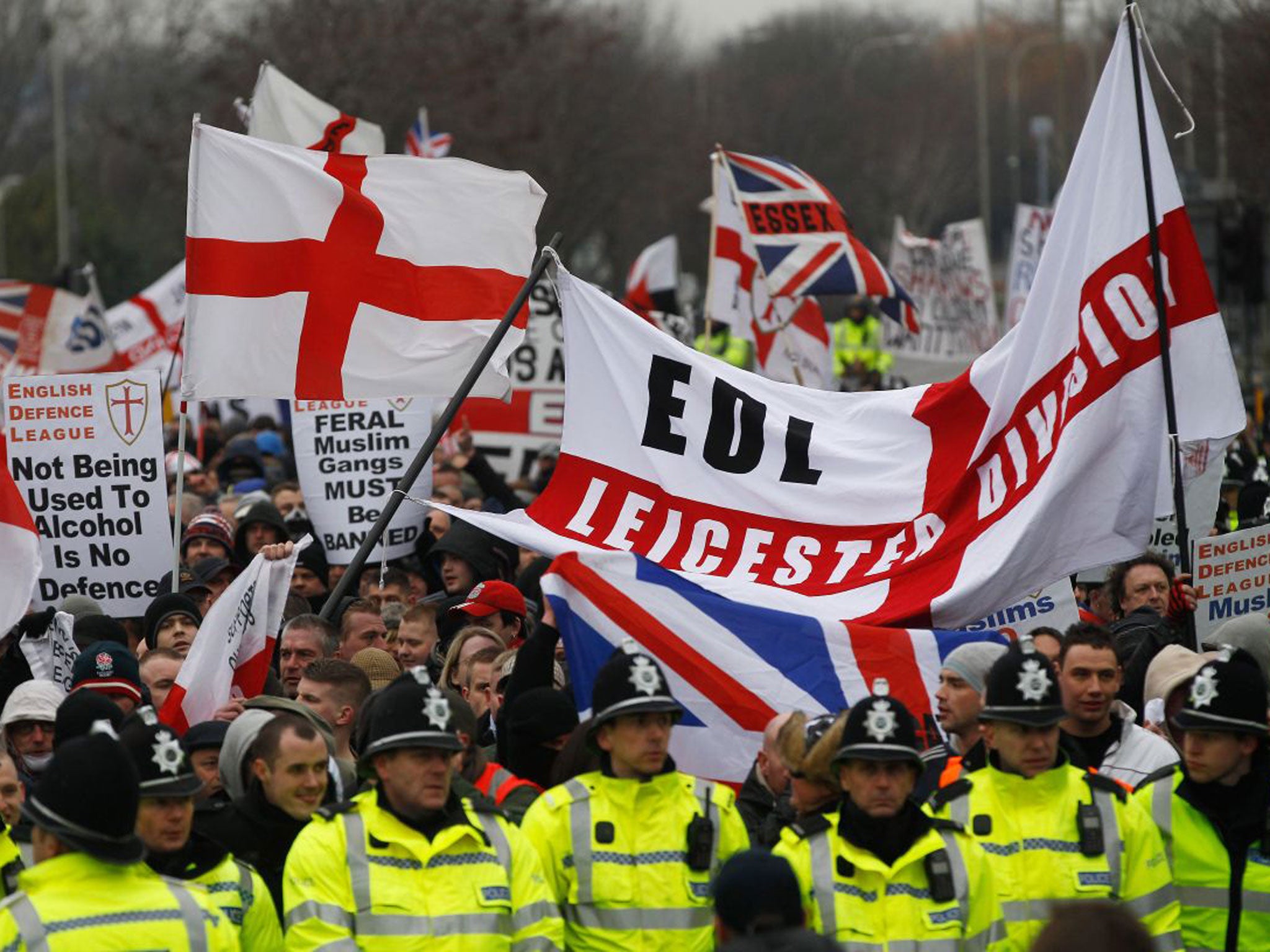Far-right vacuum could trigger 'lone-wolf' attacks
Warning about potential for a 'British Breivik'

The fragmentation of the far right could spark a new wave of political violence and Anders Breivik-style lone-wolf acts of terrorism, according to the head of the UK’s first research centre into contemporary fascism.
The warning comes as new figures reveal that there have been nearly 500 anti-Islamic attacks since March, with more than half linked to supporters of far-right groups. Professor Nigel Copsey told The Independent that the electoral decline of the British National Party (BNP) and the splintering of street-based protest organisations such as the English Defence League (EDL) had created a potentially dangerous political vacuum on the far right.
He said the relative success of right-wing groups in recent years had radicalised thousands of people online who could seek new and more violent ways to express their opposition to Islam, immigration and economic stagnation.
“We have disturbing levels of hate crime in this country which gets under-reported, and we need to know more about the level to which the far right is involved in this,” he said. “This fragmentation and disintegration of the far right could increase the potential for political violence from small aggressive groups or lone-wolf or sole-actor terrorism.”
Speaking to mark the launch of the new Centre for Fascist, Anti-fascist and Post-Fascist Studies at Teesside University, he said there was no room for complacency: “We ignore them at our peril because the demand for and the causes of the far right are still with us – they haven’t gone away and in some cases are getting worse.”
New figures from the interfaith conflict resolution organisation Faith Matters reveal that there were 496 self-reported Islamophobic incidents in the past nine months. More than six in 10 of these were against women while one in 10 was against a mosque.
Fiyaz Mughal, the director and founder of Faith Matters, said there had been a significant change in the atmosphere. “The fact is that in the past six or seven months we have seen more threats of violence online. In the past six months we have seen a lot more calls to do something physically to mosques. It is moving from what is happening in their heads to actually doing it.”
Electoral support for the BNP has declined spectacularly since its peak in 2009 when its leader, Nick Griffin, appeared on the BBC’s Question Time.
He and a fellow party member, Andrew Brons, went on to win seats in the European Parliament. But by the 2012 local elections the party was riven by financial troubles and in-fighting and found itself reduced to just two councillors – from a peak of 57 in 2009.
In October, Mr Brons, a former member of the National Front, quit the party after claiming to have been described by Mr Griffin as “vermin”. He has since joined the rival Britain First as president.
Meanwhile, the English Defence League, formed in Luton in 2009 following Islamist demonstrations against British soldiers, has seen attendance plunge at its street demonstrations.
It was also hit by revelations that the Norwegian mass murderer Anders Breivik had extensive links to the EDL and had met its leaders during a visit to London.
Splits in the EDL have led to the emergence of the North West and North East Infidels, largely through social media, which have sought to exploit anxiety over child sexual exploitation and the opening of new mosque sites.
Subscribe to Independent Premium to bookmark this article
Want to bookmark your favourite articles and stories to read or reference later? Start your Independent Premium subscription today.
